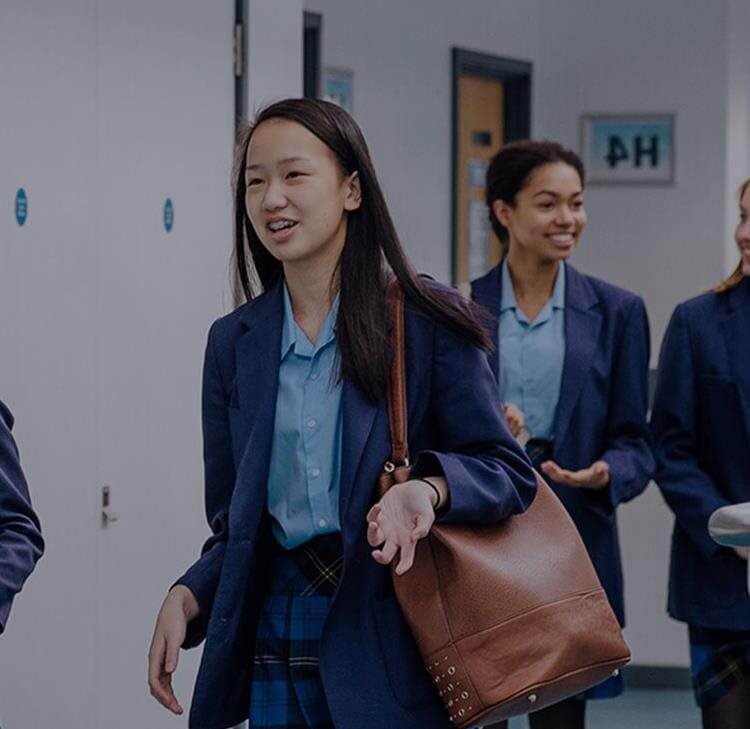Ofsted v Durand - outcome of the appeal
In 2017, we wrote about Durand Academy Trust’s (“Durand”) case against Ofsted and the High Court’s decision that Ofsted’s complaints procedure was unfair for those schools judged to require special measures or have serious weaknesses.
In 2017, we wrote about Durand Academy Trust’s (“Durand”) case against Ofsted and the High Court’s decision that Ofsted’s complaints procedure was unfair for those schools judged to require special measures or have serious weaknesses (see here). Ofsted subsequently appealed the High Court’s decision and, in December 2018, the Court of Appeal allowed the appeal, finding that Ofsted’s procedure was, in fact, fair and proper. We examine the latest decision below and identify the key points for our clients to take away from this important case law development.
The background – a reminder
The case was brought following the Ofsted inspection of Durand Academy in late 2016 and the associated report dated February 2017, in which Ofsted judged that the academy required special measures. Durand disputed the inspection outcome asserting that the judgement itself was unreasonable. In addition, Durand argued that Ofsted’s complaints procedure was unfair in that, unlike schools graded as ‘outstanding’, ‘good’ or ‘requires improvement’, schools deemed to be inadequate were unable to challenge the grade given by Ofsted under step 2 of its complaints procedure.
The High Court agreed with Durand that, as Ofsted’s complaints procedure did not allow a substantive challenge to be made to the report’s judgement of special measures, it was neither fair nor rational. This finding in itself resulted in the report being quashed and there was therefore no ruling on Durand’s other argument around the unreasonableness of the special measures judgement.
Despite the High Court’s ruling, Ofsted did not amend its complaints procedure and decided to take the matter to the Court of Appeal.
The Court of Appeal’s findings
The Court of Appeal has now found in Ofsted’s favour, allowing the appeal. Its analysis explains that, to determine whether the process in question is fair, there needs to be a review of the overall process of inspection, evaluation and reporting, not just a review of the complaints procedure itself.
As part of that overall review, the Court of Appeal highlighted the “additional statutory and non-statutory procedural safeguards” which, in its view, justify the Ofsted complaints procedure’s different treatment of schools judged to be inadequate. It was also keen to emphasise that most of these protections operate before finalisation and publication of the report.
The additional internal quality assurance and moderation which Ofsted undertakes for schools deemed inadequate had not convinced the High Court on fairness. However, the Court of Appeal’s view was that the review and checking carried out by Ofsted as part of the moderation exercise amounted to more than adequate protection, such that the ability to also challenge the grade as a step 2 complaint following finalisation of the report “would have added nothing”.
The fact that the complaints procedure for schools judged ‘outstanding’, ‘good’ or ‘requires improvement’ was different did not matter. As Lord Justice Hamblen stated, “fairness does not require equivalence”.
The alternative process
Although the decision is perhaps not the one some schools were hoping for, the case offers interesting insight into the process followed by Ofsted when a school is judged to require special measures or have serious weaknesses. The “procedural safeguards” referred to and which have been judged by the Court of Appeal sufficient to negate the need for schools to have the right to complain about the judgement under the complaints procedure include:
- The opportunities available to raise concerns during the inspection, for example during the meetings between the head teacher and lead inspector, lesson feedback and final feedback meeting;
- The ability to raise concerns under step 1 of Ofsted’s complaints procedure;
- The discussion with the senior HMI which should take place at the end of the first day if the inspection team are forming the view that the school is inadequate;
- The school’s ability to comment on any element of the draft report and receive the lead inspector’s comments in response;
- The extended period of quality assurance and moderation;
- The fact that if a complaint is made about the judgements before the report is finalised, that complaint will be referred to and considered by those carrying out the quality assurance and moderation exercise;
- The inadequate judgement requiring authorisation by the Chief Inspector or a Regional Director on their behalf.
Implications for schools
Some of these “protections” are perhaps more valuable than others. One wonders, for example, to what extent sign off by the Chief Inspector actually addresses a school’s misgivings about the judgement. Even the arguably more meaningful stage of extended quality assurance is ultimately an internal exercise with no facility for the school to respond or understand the reasoning involved. Though numerous on paper, many schools will find it easy to empathise with Durand’s case that these safeguards are no substitute for the school having the opportunity to reflect, review the final report and articulate in written form its issues with the judgement for review by someone independent of the inspection, as step 2 of the complaints procedure would offer.
However, in light of the Court of Appeal’s decision, we would advise schools graded inadequate to make full use of these different stages. In particular:
- Raise a step 1 complaint – as soon as concerns arise during a inspection visit, speak with the lead inspector. Ofsted’s complaints procedure is very clear that a step 1 complaint can include concerns about the provisional judgements. If the school’s concerns cannot be resolved through the lead inspector, the school can ask to speak to an Ofsted manager. We would also advise that, even at this more informal stage, the school keeps a record of the concerns raised and the response(s) received.
- Submit full comments on the draft report – having received the draft report the school will be asked to complete what is still referred to as the “factual accuracy check”. For a school provisionally graded inadequate, this stage is about more than factual accuracy and represents the school’s opportunity to detail in writing exactly why it disagrees with the contents of the draft report.
- Consider requesting a delay to publication – Ofsted will only agree to delay publication of a report in exceptional circumstances but if you believe there are clear and serious issues with the inspection which go to the heart of the judgements and report it is worth seeking further advice regarding this option.
- Raise a step 2 complaint regarding process and/or conduct – although the judgements within the report are usually the main concern, often it is the failure to follow process or the manner in which an inspection has been carried out that has resulted in fundamental flaws to an inspection. There is nothing which prevents schools graded inadequate from submitting a step 2 complaint in respect of process or conduct concerns. Indeed, as we have commented previously, given the amount of discretion Ofsted has when it comes to judgements, the reality is that a school is more likely to successfully challenge a report on matters of process or conduct.
The rationality argument
With regard to the other part of Durand’s original claim that Ofsted had not acted rationally in designating the academy to require special measures, this was not considered any further by the Court of Appeal.
Status of Ofsted’s complaints procedure
At the time of writing, Ofsted’s complaints procedure, although dated May 2018, remains unchanged in relation to the application of step 2 to schools deemed inadequate and the Court of Appeal’s ruling will no doubt serve to entrench the current approach further.
As part of the Durand case however, the Court of Appeal did express that it would be preferable for the minimum quality assurance procedures to be actually set out in the complaints procedure document. This would be a welcome development as there must be very few, if any, school leaders who are experienced in navigating the repercussions of a genuinely disputed inadequate judgement. It seems only right and fair then that, during what is indisputably a stressful, emotive and time-pressured period, there is clarity and consistency in dealing with schools’ concerns.
Related expertise
You may be interested in...
Online Event
Wellbeing and financial considerations – practical solutions for challenging times
Legal Update
be connected - Spring 2023
Legal Update
Teacher strikes – lessons learnt so far
Legal Update
New support launched to manage school complaints
Legal Update
Cyber security and data breaches
Legal Update
#EdCon2023 virtual event hailed a success
Online Event
Flexible working in schools webinar
Legal Update
What does the new Provider Access Legislation mean for schools?
Legal Update
High Court dismisses Welsh RSE right to withdraw claim
Opinion
Term-time school worker entitled to national minimum wage for unworked basic hours
On-Demand
Industrial action essentials: what you need to know
Legal Update
Education Software Solutions Limited breaks against the CMA’s intervention: A victory for freedom and flexibility in contracting for MIS services
Legal Update
Safeguarding at scale report published
Legal Update
Trade unions announce plans to re-ballot members
Legal Update
Widespread industrial action now confirmed for schools
Legal Update
Industrial action and minimum service levels within education
Opinion
Consultation on holiday entitlement – part-year and irregular workers
Guide
FAQs - becoming a sponsored academy
Guide
FAQs - becoming an academy sponsor
Guide
FAQs – single academy joining a MAT
Legal Update
EdCon2023 launch: Thursday 12 January
Legal Update
be prepared for the 2022-23 academic year
Legal Update
Teacher Pay Survey 2022
Legal Update
The Schools Bill – law no more
In July, we published an update on the Schools Bill with the news that the proposed legislation relating to new academy standards and extended intervention powers for academy trusts would be removed. Last week, we received broader news of the dropping of the Bill, with education secretary Gillian Keegan announcing that it will not reach its third reading in the House of Lords.Legal Update
be connected newsletter for schools - Winter 2022
Guide
Recruiting school staff on a budget – top tips
Regardless of the outcome of ballots on industrial action, unless there is drastic change to funding for schools in relation to pay increases, it will be unusual to find any organisational budget that is not impacted by the current economic situation.
Guide
Good governance essential to avoid falling foul of the ESFA
There’s been little evidence of interventions or financial management reviews this year and it appears the Education and Skills Funding Agency (ESFA) has re-focussed on financial delivery. It’s also telling that there were no discernible changes to the reporting of financial irregularities in the Academies Trust Handbook 2022.
Legal Update
Children's commissioner recommendations for SEND reform
The Children’s Commissioner, Rachel De Souza, has recently published a report “Beyond the labels: a SEND system which works for every child, every time”, which she intends to sit alongside the DfE’s SEND Review (2019) and SEND Green Paper (2022) and which she hopes will put children’s voices at the heart of the government’s review of SEND system.
Legal Update
Top three training topics 2022-23
As well as providing day-to-day support to help you focus on managing your settings, we also provide training and professional development on a range of topics to keep you and your staff up-to-date.
Legal Update
Hair discrimination – stop pupils being unfairly singled-out for their appearance
The Equality and Human Rights Commission (EHCR) recently issued new, non-statutory guidance regarding the wearing of natural or protective hairstyles, specifically in reference to their representation in uniform, behaviour or standalone appearance policies.
Opinion
The role of benchmarking in setting pay in schools
Emma Hughes, head of HR services at Browne Jacobson, explains how CST’s updated executive pay report and the linked benchmarking service from XpertHR can help trust boards make robust decisions on pay.
Legal Update
School complaint management - exploring a new way forward
There’s greater opportunity than ever for parents, carers and guardians to voice any concerns they have relating to their child’s education and for their concerns to be heard and to be taken seriously. While most staff in schools and academies are conscious of their legal duties relating to complaints management, many are struggling to cope with such a significant increase in the volume of complaints they must manage.
Guide
Virtual AGMs
This guidance has been prepared to support academy trusts (Trusts) who want to hold a fully virtual Annual General Meeting (AGM) or a hybrid AGM, as we know that Trusts may want to be prepared for future disruption as well as having a general interest in holding more meetings virtually. The guidance also applies to other meetings of the Members (known as General Meetings).
Guide
Setting up a trading subsidiary – a guide for academy trusts
We’re pleased to collaborate with Lloyds Bank, who recently asked us and audit and risk specialists Crowe UK to offer guidance that academy trusts would find helpful when considering setting up a trading subsidiary.
Legal Update
DfE Trust Capacity Fund
The DfE has published new guidance and opened the application process for window two of the Trust Capacity Fund (TCaF) for 2022/2023, with a fund of £86m in trust capacity funding focused particularly on education investment areas.
Guide
The Independent Inquiry into Child Sexual Abuse - A guide for schools and trusts
The Independent Inquiry into Child Sexual Abuse was established in March 2015. We now have its report. As you would expect with such a broad scope, the report is long and makes a number of far-reaching recommendations. In this article, Dai Durbridge highlights seven of the 20 recommendations, sets out how they could impact on schools and suggests what steps to take now.
Press Release
Law firm picks up record breaking sixth Education Investor Award
Browne Jacobson’s education team has been named as winner of the ‘Legal Advisors to Education Institutions’ category at the Education Investor Awards 2022 for a record sixth time.
Press Release
Thousands take part in virtual careers event to help increase diversity in the legal profession
Over 3000 young people from across the UK and Ireland took part in a virtual legal careers insight event, aimed at making the legal profession more diverse.
Opinion
How does the UK Education Sector fare amidst the energy crisis?
Published Article
Assaults on staff - how can schools reduce the risk?
The risk of assault against staff is, sadly, something that all schools need to consider carefully. Here one legal expert explains what they can do to protect staff and ensure they fulfil their duty of care.























